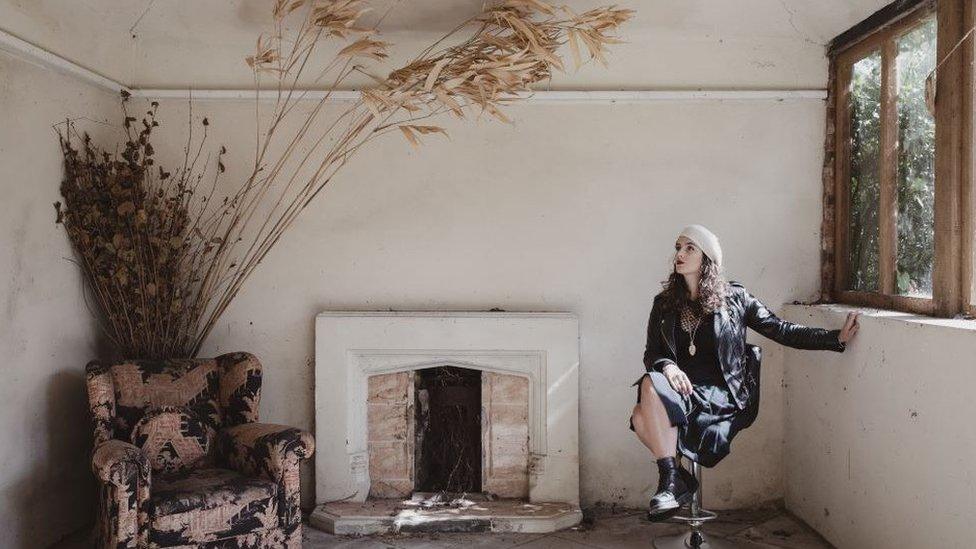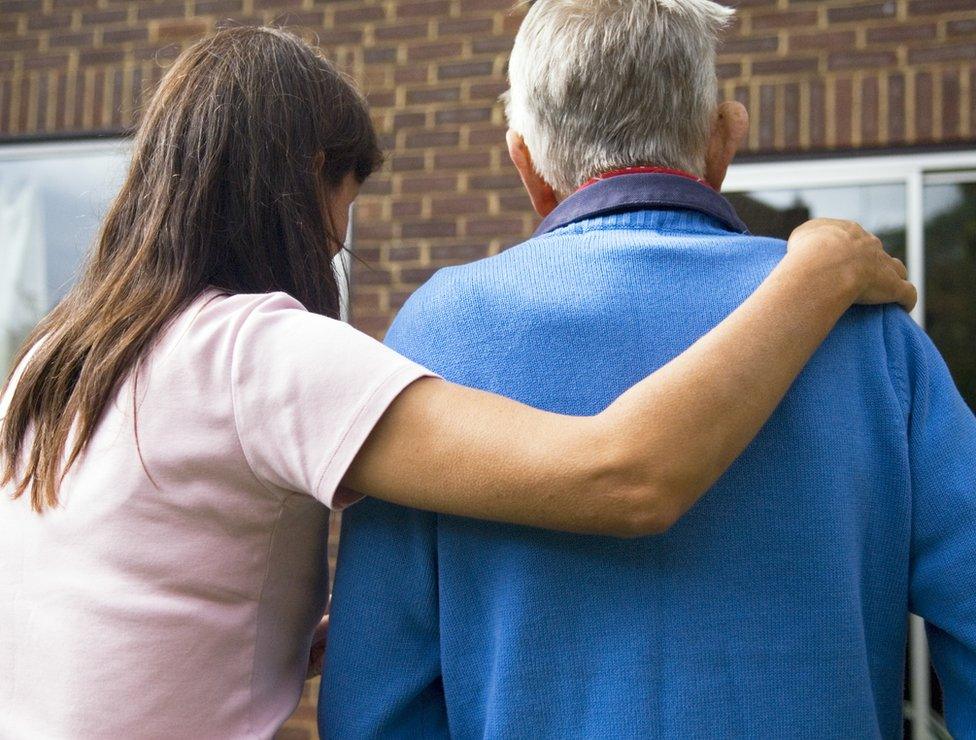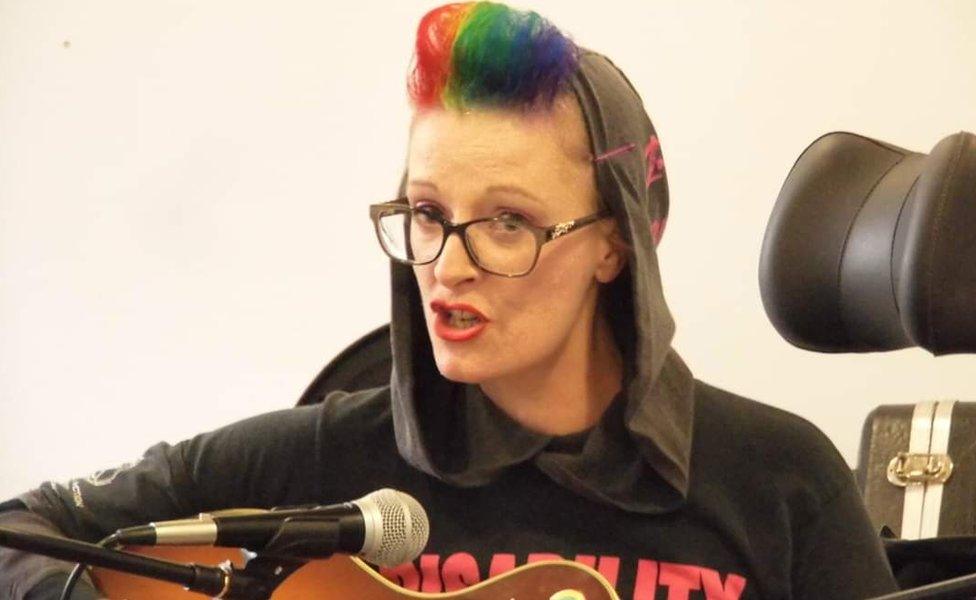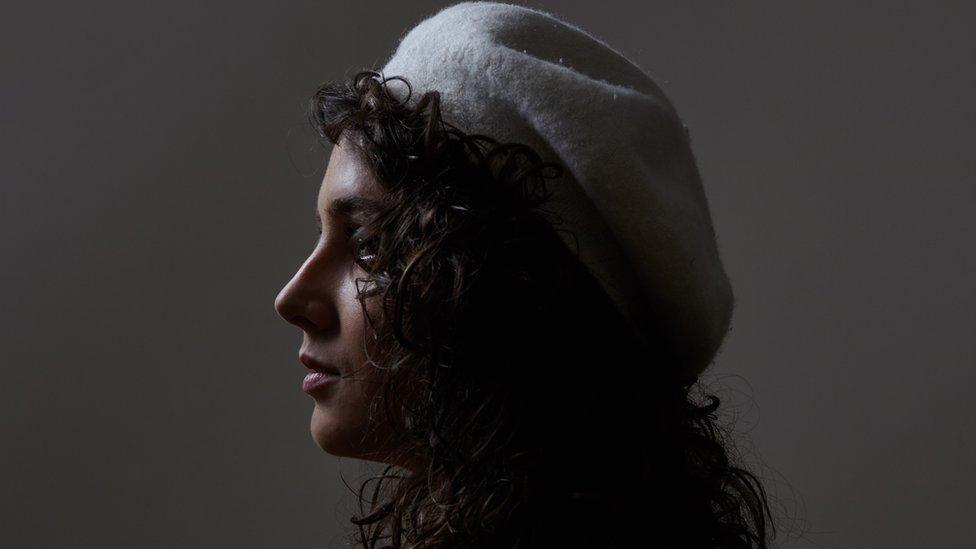How disabled people are problem-solving in the pandemic
- Published

As people in the UK continue to respond to the challenges of self-isolation, one community is helping itself find solutions to complexities most would not have to think about.
Disabled people have spent years finding workarounds to inaccessible situations and now, during the current coronavirus crisis, one group has emerged kicking around ideas like using a smart speaker instead of a carer.
Welcome to The Bunker.
The Facebook group has only been active for a few weeks but buzzes with shared personal expertise, or "lived experience".
Many members depend on personal assistants (PAs) who visit their homes to help with care. But when self-isolation started, many faced a stark choice: allow carers in the house and put themselves at risk, or suspend care, and suffer indignity, discomfort or worse. And, of course, carers are at risk too.
One of those who posted on the group's page was Chris Ledger, from Bangor, Northern Ireland, who has rheumatoid arthritis and stage four breast cancer.

Some disabled people have given up home care visits for fear of being infected
She posted that she had given up her home care on a trial basis because of infection. "Couldn't cope with the uncertainty of not knowing where my PAs had been!" she wrote.
Temporarily giving up home support is scary and could raise eyebrows or suggest that maybe you don't need it - but times are different. "We've been reassured we'll not lose the support permanently and can opt back in if it's too much," she says.
Disabled activist Dennis Queen created the group after some of her friends' PAs stopped visiting them over fears they might contract or pass on Covid-19 - "We're bunkering down so we don't get it," she says.
The group already as more than 500 members and the advice shared is often frank.
March was Free Wills Month for the over 55s, and links for the scheme were gratefully shared and there are tips for PAs on how they can adapt their behaviour to continue home visits such as measures for cleaning and protective equipment.

Dennis Queen says companionship is key to the Bunker
In a post about reducing careworker visits to your home, one person revealed Government Guidance on direct payments and flexibility, external around technology mentioned non-human help for those who have conditions like epilepsy or breathing difficulties.
After speaking to social services, it was agreed she could use her contingency budget to purchase an Echo Show smart speaker with video so people can monitor her from afar
It's a simple and relatively cheap solution with evidence that it has worked for others.
Members find sharing their stories cathartic and appreciate a community where they don't have to over-explain themselves.
"The creators, admin and those who have talked to me when I've needed it are legends," Elle posted. "It's helped me know I'm not completely on my own."
Dennis says companionship is a key feature of the group.
"It's about providing emotional support because people are worried. We're breaking down that loneliness."
Musician Ruth Patterson, from the band Holy Moly & The Crackers, has Ehlers-Danlos Syndrome which affects the body's connective tissue causing chronic pain and fatigue. She is supported by three PAs and her husband.

Ruth Patterson says disabled people have had to be resilient
She says her experiences have helped equip her to cope with the pandemic and, after having to cancel her indie-folk band's tour due to Covid-19, blogged that disabled people are "probably the most resilient people you know right now".
She says: "When you live with extra challenges like chronic pain, loss of mobility, sight or hearing and have to live life in a different way due to any form of disability, you have to adapt.
"There is no choice other than to be strong every single day, even if we don't feel it."
It's not just The Bunker drawing on collective knowledge about living in isolation for health reasons other Facebook and WhatsApp groups have emerged across the country.


A SIMPLE GUIDE: What are the symptoms?
LIKE 9/11 EACH DAY: A New York paramedic's diary
FACTORY HOTSPOT: The untold story behind America's biggest outbreak
GUNS & CHEESE: The unexpected items deemed 'essential'
REASON TO HOPE: The good that may come out of this crisis

Ruth says: "I have seen on our local community Facebook group that non-disabled people currently out of work are offering to deliver supplies to elderly and disabled people and have a chat with a cuppa through the window if they can. What a lovely, altruistic thing to do.
"It makes me feel really empowered right now, like we can get through this if we work together," she says.
Ruth and her husband are shielding - not leaving the house for 12 weeks - due to her weak immune system. So they have got creative so her PAs can continue to support them at home.
"My bedroom window can be opened as a big door so the other night I chatted to one of my lovely PAs/best friends out the window whilst he sat outside. It cheered both of us up."
For Dennis, sharing solutions is the bedrock of the disability community.
"People can't imagine wanting to be us," she says. "What they don't realise is that if they became like us, whilst it's difficult, they would soon find they're fine.
"We find ways around things as long as we're not being massively neglected."

Ruth's advice for self-isolation

For personal assistants: extra hand washing, gloves and hand sanitiser when they arrive
Stop catastrophising - you have no control over the situation
Accomplish one thing a day, whether it is sending an email or writing a lyric
Acceptance is key: many disabled people say that the day they accepted their circumstances proved to be a turning point.

If you are considering a change to your healthcare you should always check with your usual medical consultants.
You can follow Harry, external on Twitter. For more Disability News, follow on Twitter, external and Facebook, external, and subscribe to the podcast.
